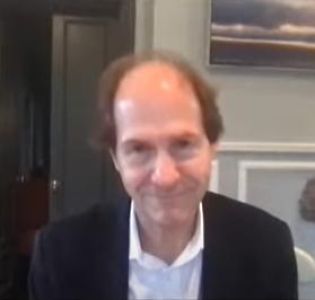Join getAbstract to access the summary!

Join getAbstract to access the summary!
Cass R. Sunstein
How to Create a Better New Normal
RSA, 2021
What's inside?
Learn about how social change happens from a co-author of nudge theory.
Recommendation
To help create change – and build understanding of how social change happens – the RSA has been speaking with policy makers and practitioners who explore the processes of change. In this video from the RSA’s “Living Change” series, RSA chief Matthew Taylor speaks with Cass R. Sunstein about his book This Is Not Normal and the current state of change in 2021. Sunstein, an influential legal scholar and co-author of nudge theory, teaches at Harvard Law School.
Summary
About the Speaker
Cass R. Sunstein is an influential American legal scholar, the author of This Is Not Normal: The Politics of Everyday Expectations and How Change Happens, and co-author of Nudge: Improving Decisions About Health, Wealth and Happiness.
































Comment on this summary